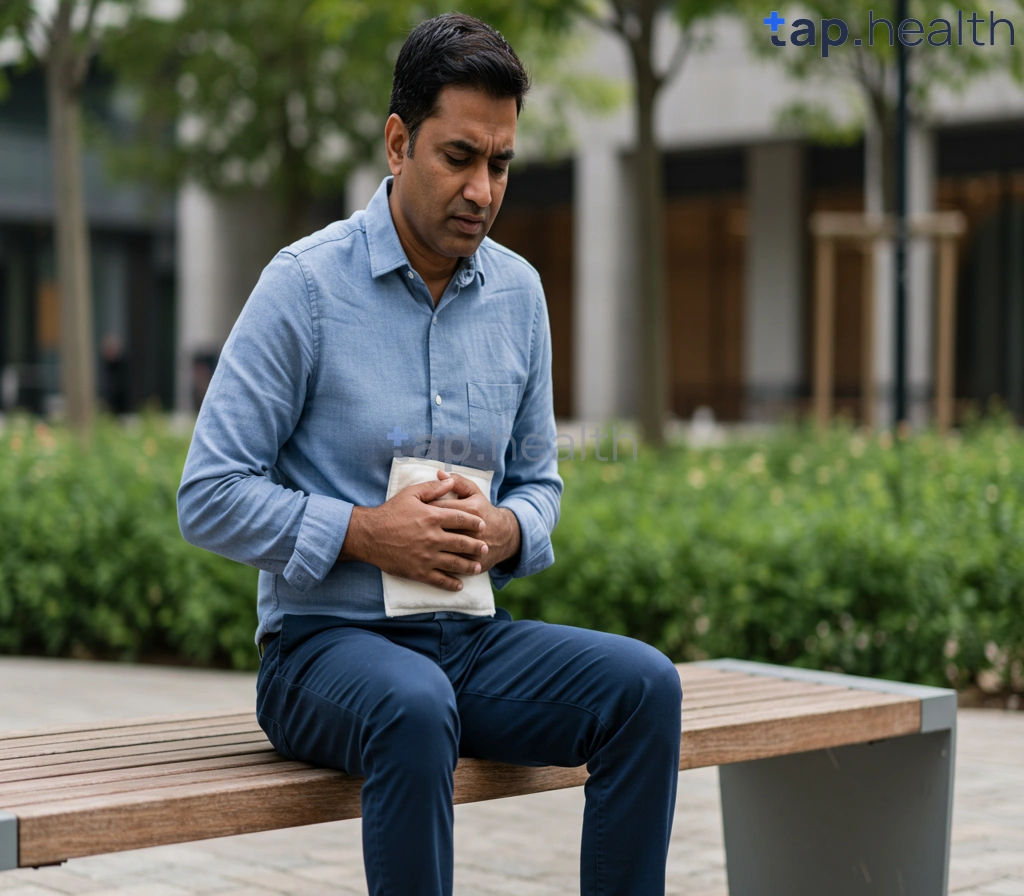Table of Contents
- Understanding Chronic Pancreatitis: Symptoms & Diagnosis
- Chronic Pancreatitis Treatment: Managing Pain and Inflammation
- Living with Chronic Pancreatitis: A Guide for Patients and Families
- Chronic Pancreatitis Diet: Nutrition Tips for Better Management
- Is it Chronic Pancreatitis? A Comparison of Symptoms with Other Conditions
- Frequently Asked Questions
- References
Living with chronic pancreatitis can feel like navigating a maze of symptoms, treatments, and uncertainties. It’s a challenging condition, and understanding chronic pancreatitis is the first crucial step towards managing it effectively. This patient-focused overview aims to demystify this complex disease, providing you with clear, concise information to empower you on your journey. We’ll explore common symptoms, diagnostic methods, and treatment options, helping you to better communicate with your healthcare team. Let’s work together to navigate this, one step at a time.
Understanding Chronic Pancreatitis: Symptoms & Diagnosis
Chronic pancreatitis, a long-term inflammation of the pancreas, presents unique challenges in diagnosis, especially in regions like India and other tropical countries with high rates of undiagnosed conditions. Understanding the symptoms is crucial for early intervention. The pancreas plays a vital role in digestion and blood sugar regulation, so its dysfunction can have wide-ranging effects.
Recognizing the Symptoms
Symptoms can vary widely, making diagnosis challenging. Common indicators include persistent abdominal pain, often radiating to the back, that may worsen after eating. Weight loss, nausea, vomiting, and fatty stools (steatorrhea) are also frequent complaints. The severity of symptoms can fluctuate, making self-diagnosis difficult. Importantly, many individuals experience subtle or intermittent symptoms, delaying diagnosis and potentially leading to complications. This highlights a critical need for increased awareness, particularly given that, globally, 50% of diabetes cases are undiagnosed, a condition often linked to pancreatic issues. In tropical climates, certain dietary factors and infectious diseases could also influence the presentation and prevalence of chronic pancreatitis. For a more comprehensive list of potential symptoms, see our blog on 10 Pancreatitis Symptoms: What You Need to Know.
Diagnostic Procedures
Diagnosis typically involves a combination of blood tests (checking for elevated amylase and lipase levels), imaging studies (such as ultrasound, CT scan, or MRI), and potentially endoscopic procedures. These investigations help assess the extent of pancreatic inflammation and identify any complications. Early and accurate diagnosis is critical to manage symptoms, prevent complications, and improve the patient’s quality of life. Given the often insidious onset of symptoms, seeking medical attention promptly at the first signs of persistent abdominal pain or digestive issues is crucial, especially in high-risk populations.
Seeking Help in India and Tropical Countries
Early detection and appropriate management of chronic pancreatitis are paramount. If you experience persistent abdominal pain, digestive problems, or unexplained weight loss, consult a gastroenterologist or a physician experienced in managing pancreatic diseases. Access to specialist care might vary across regions, so proactive engagement with healthcare providers is essential. Don’t hesitate to seek a second opinion if needed. Remember, early diagnosis significantly improves treatment outcomes and overall prognosis. For more information on the causes and treatments for chronic pancreatitis, please refer to our article on Chronic pancreatitis: Symptoms, Causes & Treatment.
Chronic Pancreatitis Treatment: Managing Pain and Inflammation
Chronic pancreatitis, a debilitating condition causing persistent inflammation of the pancreas, presents significant challenges in tropical and Indian climates. Managing the pain and inflammation associated with this disease is crucial for improving quality of life. A key aspect of this management involves addressing the considerable impact on patients. For instance, diabetic neuropathy, affecting 30-50% of chronic pancreatitis patients, significantly exacerbates pain and reduces mobility, impacting daily activities in already challenging climates.
Pain Management Strategies
Effective pain management is paramount. This often involves a multifaceted approach including medication, such as analgesics and potentially opioids in severe cases. Lifestyle modifications, including a low-fat diet, are also essential. Regular exercise, while challenging with pain, can improve overall well-being and reduce inflammation. In India and other tropical regions, access to consistent healthcare and specialized pain management clinics can vary significantly. Seeking early consultation with a gastroenterologist or pain specialist is vital.
Reducing Inflammation
Controlling inflammation is key to slowing disease progression. This often involves careful dietary management, minimizing alcohol consumption (a major risk factor), and adhering to prescribed medications, which may include enzyme supplements to aid digestion. In hot and humid climates, proper hydration is crucial, as dehydration can worsen symptoms. Staying informed and actively participating in your treatment plan is essential for managing chronic pancreatitis effectively in any climate. Consider joining support groups for additional guidance and emotional support.
Seeking Regional Care
Access to specialized care varies across India and other tropical countries. It is crucial to locate gastroenterologists and specialists experienced in managing chronic pancreatitis. Actively engage with your healthcare provider to develop a personalized treatment plan tailored to your specific needs and the unique challenges of your environment. Remember, effective management of chronic pancreatitis is a journey requiring proactive engagement and consistent care. For those experiencing a sudden onset of severe pain, understanding the symptoms of Acute Pancreatitis: Symptoms, Causes & Treatment is crucial for prompt medical attention. If you are exploring alternative treatment options, you might find information on Pancreatitis Treatment in Homeopathy helpful, but always consult with your doctor before making any changes to your treatment plan.
Living with Chronic Pancreatitis: A Guide for Patients and Families
Chronic pancreatitis, a debilitating inflammatory condition affecting the pancreas, presents unique challenges in Indian and tropical countries. Understanding the disease is crucial for effective management and improving quality of life. Early diagnosis is key, as the chronic inflammation can lead to significant complications, including severe abdominal pain, malabsorption of nutrients, and diabetes. The latter is particularly concerning given the increased risk of kidney disease; nearly 30% of individuals with diabetes develop diabetic nephropathy. Managing blood sugar levels effectively is paramount for both diabetes and pancreatitis management.
Coping with Symptoms and Complications
Pain management is often a central focus for individuals with chronic pancreatitis. This might involve medications, lifestyle adjustments, and, in some cases, more invasive procedures. Malabsorption, another common complication, necessitates dietary modifications. A registered dietitian specializing in pancreatic insufficiency can provide personalized guidance on nutrition. In tropical climates, maintaining adequate hydration is crucial, especially during warmer months, to prevent dehydration. Access to clean water and appropriate sanitation is vital in preventing infections, which can exacerbate pancreatitis symptoms.
Seeking Support and Resources
Support groups and patient advocacy organizations play a vital role in connecting individuals with chronic pancreatitis with resources and emotional support. In many Indian and tropical countries, access to specialized healthcare may be limited. Therefore, identifying local gastroenterologists and endocrinologists with expertise in managing pancreatitis is crucial. Early and proactive management through regular check-ups and adherence to treatment plans can significantly improve long-term outcomes. Remember to always consult with your healthcare provider before making any changes to your diet or medication regimen. While chronic pancreatitis is a serious condition, it’s important to remember that it’s not automatically fatal. For more information on the severity of the condition, you might find our article on Can You Die from Pancreatitis? helpful.
Finding Help in Your Community
Connecting with local support networks and healthcare professionals can greatly enhance your journey with chronic pancreatitis. This includes finding doctors with experience managing the condition, particularly in the context of common co-morbidities like diabetes, prevalent in the Indian subcontinent and other tropical regions. Don’t hesitate to seek assistance. Your well-being is paramount. It’s also important to be aware of the symptoms of pancreatic cancer, a separate but related concern. Learn more about the symptoms in our guide, Pancreatic Cancer Symptoms Guide for Patients.
Chronic Pancreatitis Diet: Nutrition Tips for Better Management
Managing chronic pancreatitis requires a careful approach to diet, especially in hot and humid climates prevalent across India and other tropical countries. Proper nutrition is crucial for reducing pain, preventing complications, and improving overall quality of life. One key aspect is carbohydrate intake. While individual needs vary, research suggests that 45–60 grams of carbs per meal is a common guideline for many people with diabetes, a condition often associated with chronic pancreatitis. However, this is just a starting point and should be adjusted based on your specific needs and blood sugar levels under the guidance of a healthcare professional.
Managing Carbohydrate Intake
It’s essential to choose complex carbohydrates over simple sugars. Instead of refined white rice or sugary snacks common in many Indian households, opt for whole grains like brown rice, oats, and millets – readily available throughout the region. These provide sustained energy release and better blood sugar control. Furthermore, incorporating high-fiber fruits and vegetables, such as seasonal produce found locally, is beneficial for digestive health. Remember to prioritize easily digestible foods and avoid those high in fat, as they can exacerbate pancreatic inflammation.
Hydration and Regional Considerations
Staying well-hydrated is crucial, especially in tropical climates. Dehydration can worsen symptoms, so drink plenty of water and consider including hydrating fluids like coconut water – a popular and readily available beverage in many Indian and tropical countries. Remember, a personalized dietary plan is key. Consult a registered dietitian or gastroenterologist experienced in managing chronic pancreatitis in your region for tailored advice and support. They can help you create a meal plan that addresses your specific needs and local food availability. Seeking professional guidance is paramount for effective management. While chronic pancreatitis is different from acute pancreatitis, understanding the potential long-term implications can be helpful. For more information on the potential impact on life expectancy, you may find our article on Life Expectancy After Acute Pancreatitis useful. Managing chronic conditions often requires a holistic approach, and dietary considerations are crucial. For example, some dietary strategies overlap with managing conditions like PCOS. You might find our article on Best Diet for PCOS Management: Expert Recommendations informative in understanding broader dietary principles.
Is it Chronic Pancreatitis? A Comparison of Symptoms with Other Conditions
Chronic pancreatitis, a persistent inflammation of the pancreas, presents a complex diagnostic challenge, particularly in regions like India and other tropical countries where certain conditions are more prevalent. Differentiating it from other ailments is crucial for timely and appropriate treatment. Many symptoms overlap with other digestive issues, leading to delayed diagnosis.
Common Symptoms and Differential Diagnosis
Abdominal pain, often radiating to the back, is a hallmark of chronic pancreatitis. However, this pain can mimic symptoms of gallstones, peptic ulcers, or even kidney stones. Weight loss, nausea, and vomiting are also common, mirroring symptoms of various gastrointestinal disorders. In addition, malabsorption, leading to steatorrhea (oily stools), can be a key indicator, but it also presents in other pancreatic and digestive diseases. The presence of diabetes should raise suspicion, especially given that over 80% of Type 2 diabetics exhibit insulin resistance, a factor which can also be implicated in the development of chronic pancreatitis. The chronic nature of inflammation can also lead to diabetes, creating a complex interplay. Understanding the nursing considerations is crucial, and you might find What is the nursing diagnosis for pancreatitis? helpful.
Considering Regional Factors
In tropical climates, infections like pancreatitis caused by mumps or other viral infections are more prevalent and need to be considered. Dietary factors specific to Indian and tropical cuisines can also play a role in the development or exacerbation of pancreatitis. Therefore, a thorough medical history, including dietary habits and potential exposure to infectious agents, is vital for accurate diagnosis. It is important to consult a gastroenterologist or other appropriate specialist for a comprehensive assessment and proper diagnosis. Early intervention is key to managing chronic pancreatitis effectively and mitigating long-term complications. The question of curability often arises, and for a related perspective, you can read Is Pancreatic Cancer Curable? Expert Insights.
Frequently Asked Questions on Chronic Pancreatitis
Q1. What is chronic pancreatitis and what are its common symptoms?
Chronic pancreatitis is a long-term inflammation of the pancreas. Common symptoms include persistent abdominal pain (often radiating to the back), weight loss, nausea, vomiting, and fatty stools. However, symptoms can vary widely.
Q2. How is chronic pancreatitis diagnosed?
Diagnosis involves a combination of blood tests (checking amylase and lipase levels), imaging techniques such as ultrasound, CT, or MRI scans, and potentially endoscopic procedures. A thorough medical history is also crucial to differentiate it from other conditions.
Q3. What are the treatment options for chronic pancreatitis?
Treatment focuses on pain management (medication and lifestyle changes), controlling inflammation (diet, medication, and hydration), and managing related issues like diabetes and malabsorption. This often involves a multifaceted approach including dietary modifications, regular medical check-ups, and support groups.
Q4. What kind of dietary changes are recommended for managing chronic pancreatitis?
A low-fat diet rich in complex carbohydrates is typically recommended to help manage the symptoms and complications of chronic pancreatitis. Specific dietary recommendations should be discussed with a doctor or registered dietitian.
Q5. What is the importance of early diagnosis and proactive healthcare engagement for chronic pancreatitis?
Early diagnosis is vital for effective symptom management and preventing serious complications. Proactive engagement with healthcare providers, including regular check-ups and open communication about symptoms, is essential for optimal outcomes.
References
- A Practical Guide to Integrated Type 2 Diabetes Care: https://www.hse.ie/eng/services/list/2/primarycare/east-coast-diabetes-service/management-of-type-2-diabetes/diabetes-and-pregnancy/icgp-guide-to-integrated-type-2.pdf
- How patients make sense of a diabetes diagnosis: An application of Weick’s model of organizing: https://www.diabetesresearchclinicalpractice.com/article/S0168-8227(20)30367-3/pdf




